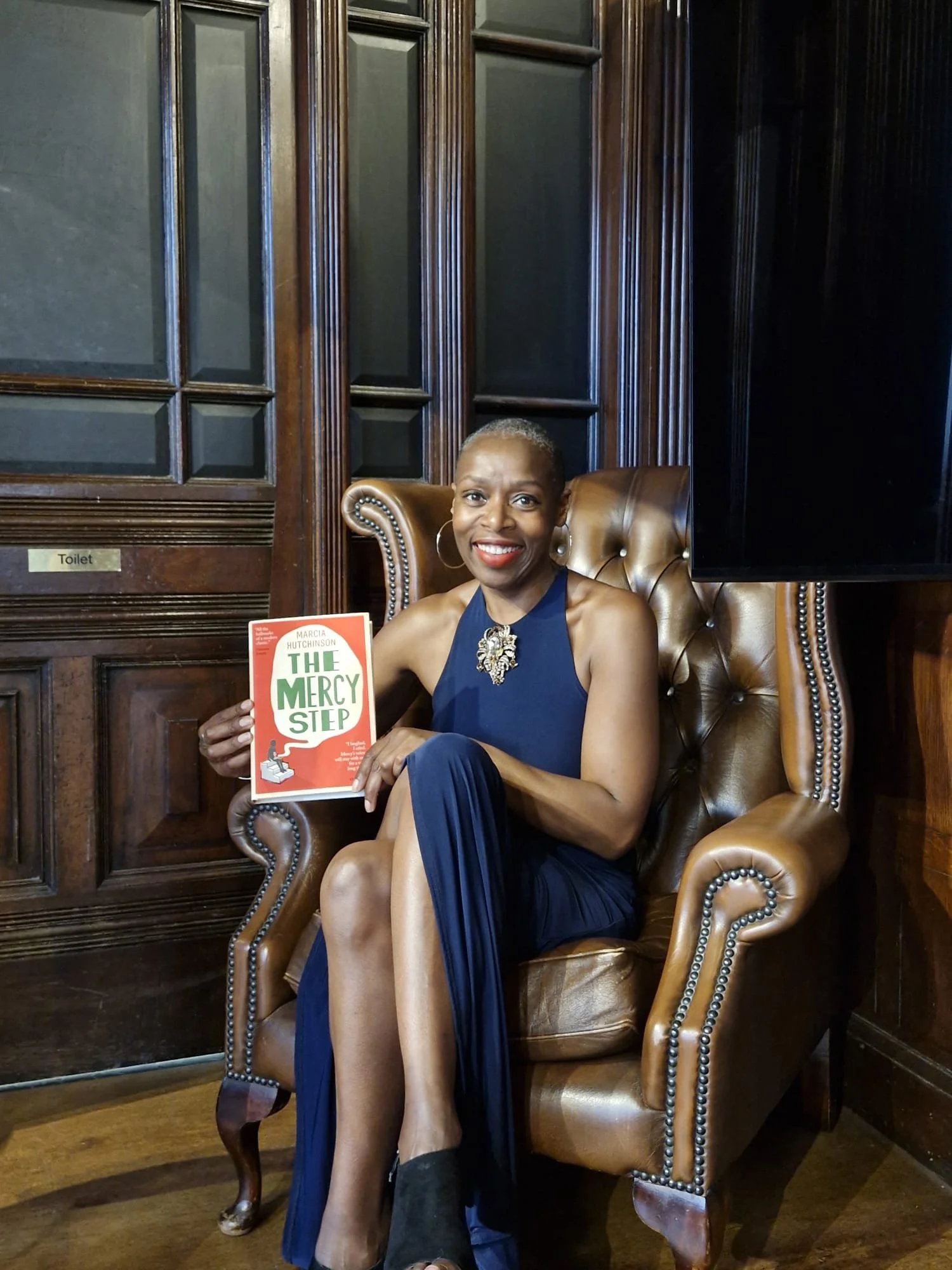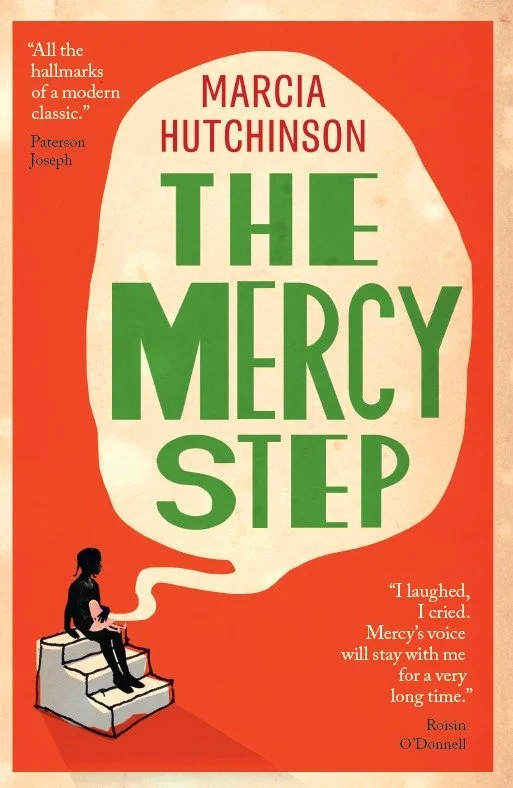Book Review: The Mercy Step by Marcia Hutchinson
BOOK REVIEW
Author Background
Marcia Hutchinson, a British-Jamaican writer and educator, has released her first novel with Cassava Republic Press - an independent publisher dedicated to promoting African and Black diasporic voices. Hutchinson, who is most known for her work in anti-racism education, infuses The Mercy Step with decades of cultural sensitivity and lived experience. Resulting in a powerful story connecting individual recollections with overarching societal criticism.
© David Levenson/Getty Images
Searching For Mercy
Set in 1960-70s Bradford, Northern England, The Mercy Step traces the early life of Mercy, a young girl growing up in a Caribbean immigrant household. Following her journey from birth to age 11, Hutchinson captures the complexities of childhood within a culturally rich but often challenging environment. The novel opens with Mercy’s birth and entry into a chaotic, overcrowded family. Born the fifth child of overworked and emotionally stretched parents, who go on to have two more children. Her home life is shaped by poverty, religious discipline and unspoken emotional struggles, particularly between her loving but emotionally burdened mother and her distant, sometimes abusive father.
Told through Mercy’s evolving perspective, the novel offers a vivid exploration of identity, family and belonging in postwar Britain. There is something uniquely powerful in reading difficult truths from a young narrator because children do not relate using jargon or ideology; they feel, react and ask questions. This raw and unfiltered perspective gives The Mercy Step its emotional resonance, allowing readers to engage with Mercy’s experiences on a deeply intuitive level. The Mercy Step blurs the boundaries between fact and fiction, transforming memory into a powerful narrative of personal growth. Hutchinson’s storytelling moves beyond individual experience to engage with broader themes of race, belonging and regional identity. There is a sense that Hutchinson is not only working through personal truth but channelling the stories of many Black and immigrant women and girls. Though not all readers may share Mercy’s experiences, one can see themselves in her.
Hutchinson balances emotional heaviness with humour in a way that feels completely organic to Mercy’s personality. Importantly, the light-hearted moments do not undercut the story as it unfolds, instead it gives us an entry point into Mercy’s world. Sometimes Mercy’s thoughts are funny, sometimes they are heartbreaking, but they are always real. In those moments, we are reminded that this is not just a story about growing up, it is about how we live, interpret and laugh amid pain. This makes The Mercy Step accessible and suitable for a wide readership, particularly those drawn to intergenerational stories, diasporic identity and the complexity of girlhood.
‘Mercy loves her mother but the nature of that love is changing hardening into something she does not like...She can’t say the words but she feels herself shrinking inwardly away from her mother, the chord may still be there but she doesn't feel for it.’
Themes and Technique
In The Mercy Step, Hutchinson skilfully writes about heavy and interconnected themes, such as racism, sexism and faith, through the eyes of a child whose awareness grows as they age. We follow Mercy's perspective as it develops over the years and with every step we see how institutions of power such as the familial home, community and society become more apparent to her. Hutchinson reflects this development not just through content, but through tone and language, allowing Mercy’s voice to mature in step with her increasing consciousness of the world around her. Her hybrid style, combining the immediacy of lived experience with the imaginative reach of fiction, invites readers to witness Mercy’s coming-of-age and reflect on how storytelling itself can function as cultural testimony and quiet resistance.
A strength of the novel is in its insight into how parents, knowingly or unknowingly shape their children’s identity and worldview. Hutchinson explores how love and protection can merge with shame and silence, particularly in settings where survival usually comes before emotional expression. Hutchinson’s exploration of religion does not dismiss faith entirely, it does question how Christianity can be used as a tool for control, especially when used to avoid accountability or to silence. By confronting these questions, Hutchinson inspects what happens when faith takes precedence over parental care, and what it means for children to grow up in environments where religious authority is present but safety is not. In one passage, Mercy muses:
‘Mummy is sure there is a heaven and even surer there is a hell but Mercy is not sure at all. The library books talk about Elysium and Hades which are a bit like heaven and hell, which one is right?’
There is always the chance a book with so many big ideas will leave something unfinished. But that is how life works. Most of the time, we do not have time to sit down and carefully unpack everything. We do our best to make sense of what is going on around us and with us in life.
Source: Telegraph & Argus
Why The Mercy Step Matters
The Mercy Step offers an intimate look at how children quietly process violence, faith, gender and identity, often before adults are willing to admit these realities exist. Hutchinson invites reflection on how the world is absorbed long before it is fully understood. The novel is especially important because it brings visibility to topics that despite being widely experienced are often considered taboo in Black, immigrant, female or religious spaces. By anchoring difficult issues in the evolving perspective of a child, Hutchinson disarms the reader, inviting empathy, recognition and conversation. This is not just a literary accomplishment; it is a crucial cultural intervention. The Mercy Step is an extraordinary starting point for honest and layered dialogue about the systems we inherit and the silences we sustain. It opens the door to understanding and healing.
‘Mercy realises that although she loves her mother, she cannot abandon reason for her. She cannot do what her mother is always asking, which is have faith, blind faith.’
Final Thoughts
This is not an easy book, but it is a beautiful one. The Mercy Step gives us a child protagonist whose clarity and complexity linger long after the final page. The writing is emotionally intelligent and thematically bold. Recommended without hesitation for readers who seek literature that interrogates and heals.
Copies of The Mercy Step are available for sale here.
We appreciate Cassava Republic for providing Harare Book Club with a reviewer’s copy.
Written by - Nyasha Nyahunzvi




